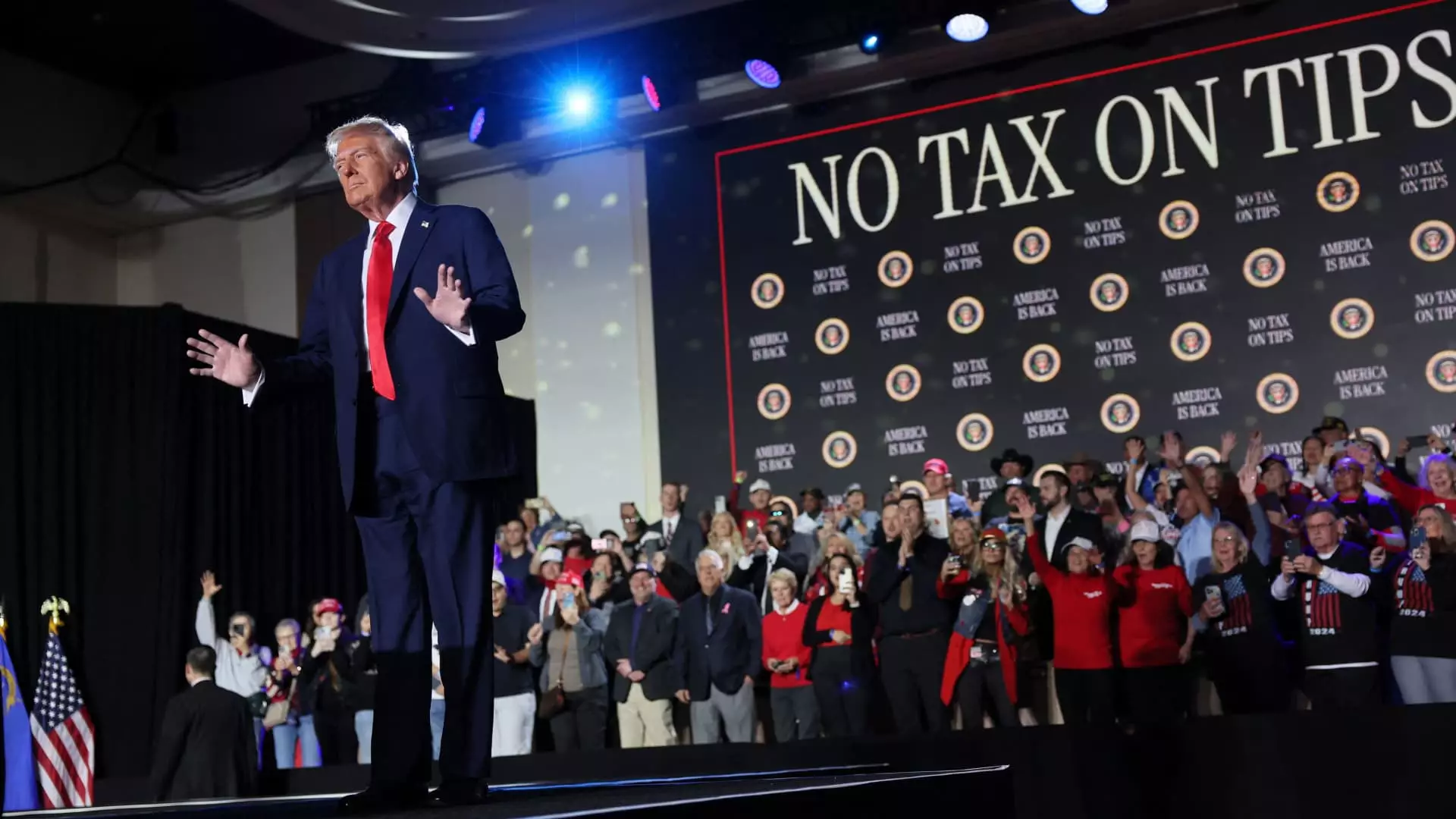In an unexpected show of bipartisan support, the Senate recently rubber-stamped the “No Tax on Tips Act”, a move that aligns with the campaign rhetoric of former President Donald Trump as he gears up for another presidential run. At first glance, one might commend this act for its intention to alleviate the financial burdens of service workers across the nation. However, beneath the surface lies a myriad of complexities that raise serious questions about the underlying motives and the potential repercussions of such legislation.
The intended goal of the bill—to allow employees receiving cash tips to benefit from a federal income tax deduction of up to $25,000—speaks to a critical need for worker relief. Yet, it remains unclear whether this gesture will truly address the financial disparity faced by the majority of tipped workers. With an earnings threshold set at a locationally specific figure of $160,000, adjusted for inflation annually, one cannot help but wonder: is this legislation even aimed at those most in need, or is it merely a political tool meant to curry favor with a particular voting demographic?
Who Actually Benefits?
According to data from The Budget Lab at Yale, approximately four million U.S. workers are employed in tipped occupations, accounting for just 2.5% of the total workforce. However, a deeper examination reveals that a significant portion of these workers are employed part-time and thus may not even reach the federal tax threshold to benefit from such deductions. A portion of this legislation appears to target more moderate to middle-income workers, while those scraping by on minimal tips receive little to no marginal benefit from this proposal.
As pointed out by tax policy analysts, the bill could disproportionately favor higher earners within tipped fields while largely neglecting those who work part-time or earn below the standard deduction level. It leaves one questioning the efficacy of a bill that promises relief but may ultimately benefit only a specific subset of tipped workers, further increasing income inequality rather than ameliorating it.
The Practical Implications of a Tip-free Tax Environment
The potential for creating a “no tax on tips” structure raises a myriad of economic questions. Could this poorly thought-out policy lead businesses to shift their compensation models towards a greater reliance on tips? The idea could inadvertently alter the fabric of industries heavily reliant on gratuities, leading to added strains on both workers and employers. Similar systems might emerge in sectors where tipping is non-existent, thus distorting workforce dynamics across the board.
Moreover, the opportunity for exploitation is significant. If tips can be classified broadly to gain undue tax benefits, one can predict a surge in murky financial practices sprouting from this new tax framework. Would a waitress earning $35,000 with $10,000 in legitimately tipped income be treating the system differently than her counterpart in retail, who pays full income tax on the same total? The inherent injustice raises eyebrows: Why should one worker benefit significantly while another, engaged in a comparable role with no tip income, effectively pays more taxes for the same financial output?
The Social Constructs of Tipping
What makes tipping so complicated, and perhaps indefensible in rational policy, is its very nature as a social construct rather than a straightforward economic transaction. The expectation to tip varies widely among cultures and industries, leading to widespread inconsistencies. Moreover, framing this issue strictly through the lens of tax policy diminishes the broader conversation necessary about worker rights, the morality of tipping, and equitable compensation.
While the intent behind “No Tax on Tips” may reflect a desire to assist hard-working Americans, it simultaneously offers a troubling blueprint for inadequate legislative response. It’s a moment that echoes similar sentiments across a political landscape often riddled with misplaced priorities and performative action. By suggesting that the solution to economic disparity lies merely in adjusting tip taxation, policymakers risk ignoring the more profound issues of wage stagnation and labor rights that remain rampant in our workforce today.
A Call for Thoughtful Reform
If progressive change is to arise from this moment in cinema, it must center on comprehensive reform that addresses the whole of an affected workforce, rather than just segments of it. Workers deserve compensation that recognizes their efforts and contributions, a reality that shouldn’t be reliant on the elusiveness of tipping practices. The “No Tax on Tips Act” offers an opportunity for dialogue, yet it’s incumbent upon lawmakers to tread carefully and provide solutions that genuinely uplift all workers—not just the fortunate few.

